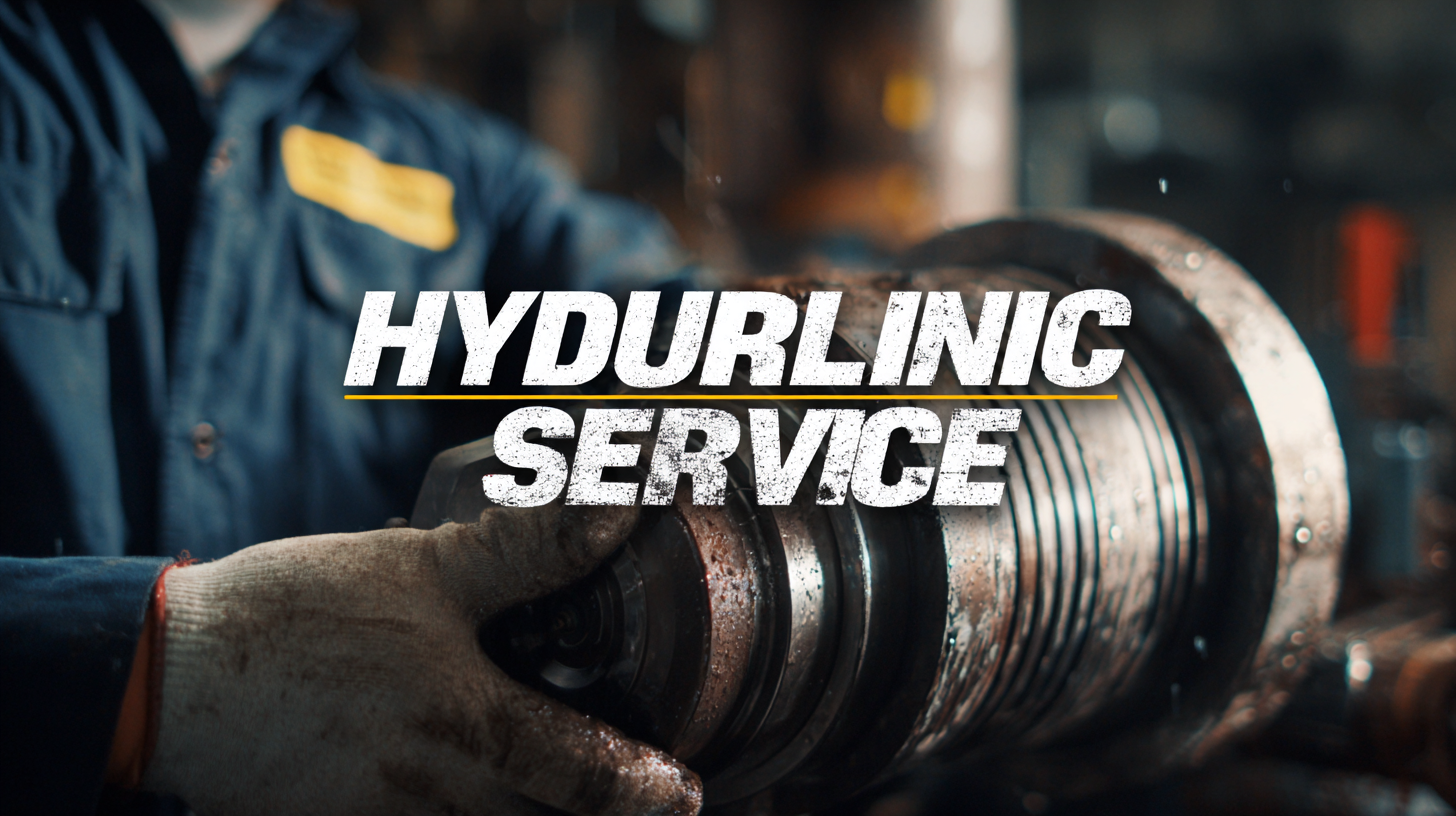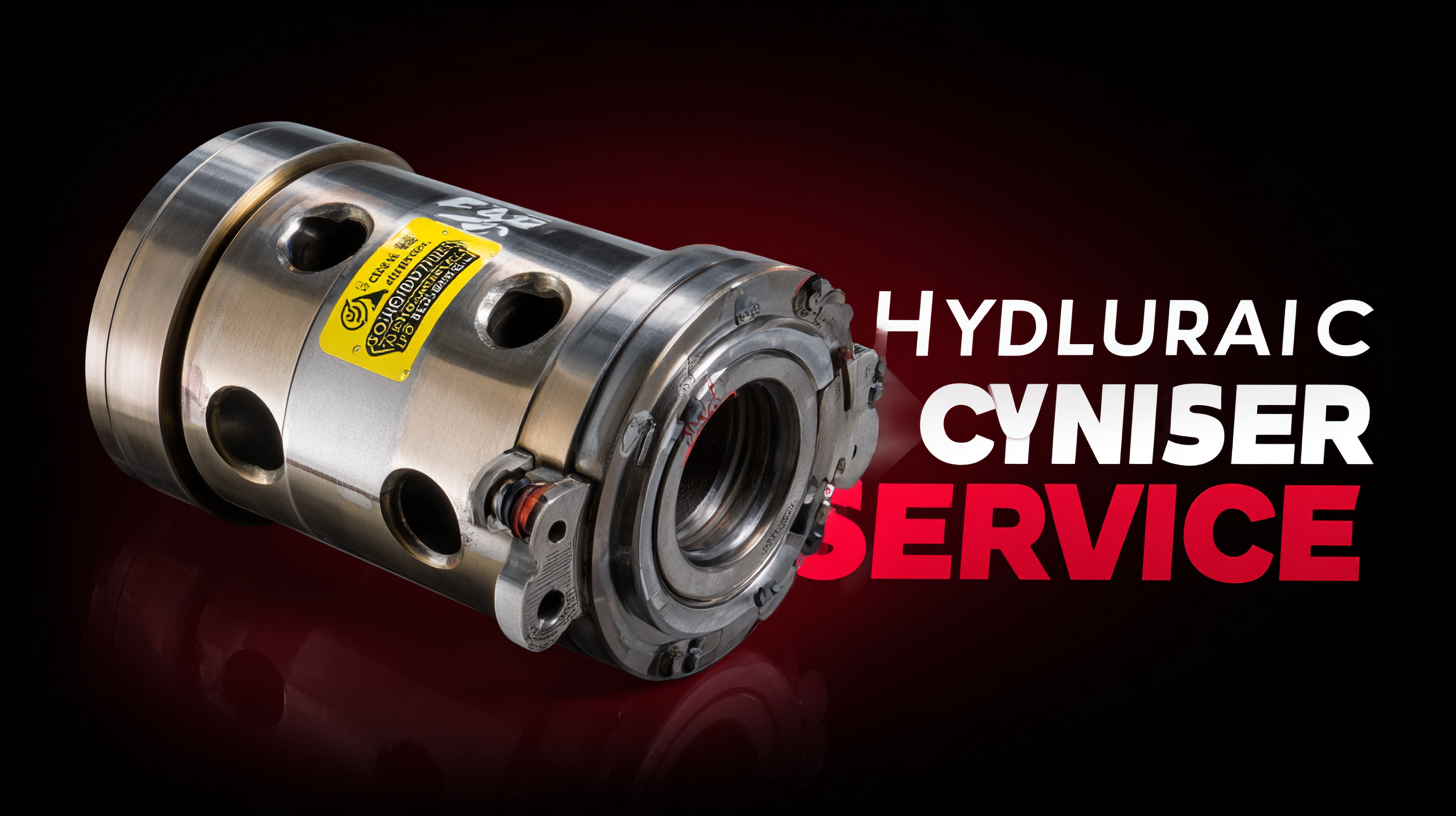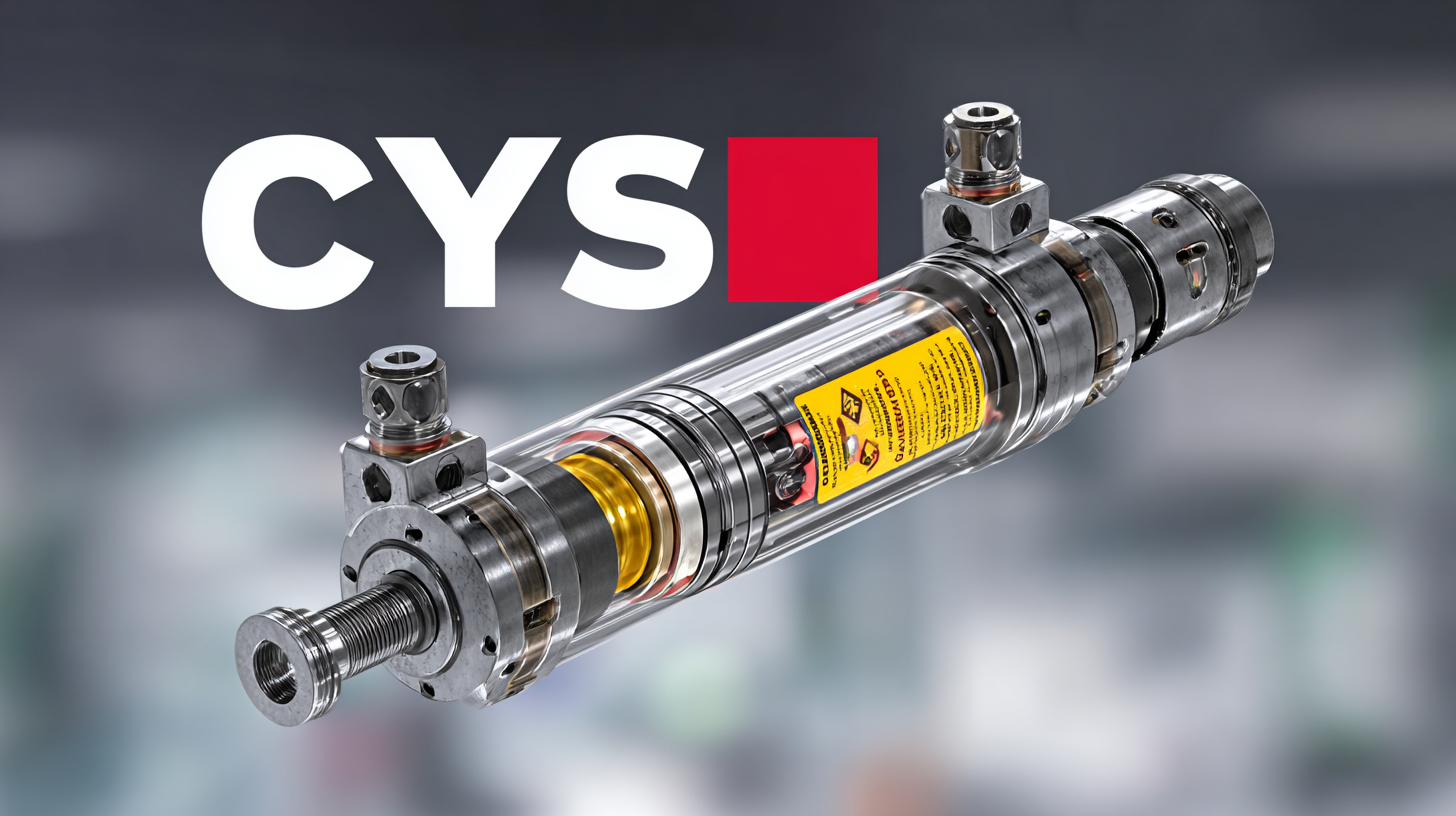Understanding Industry Standards: How to Choose the Best Hydraulic Cylinder Service for Your Needs
In today's rapidly advancing industrial landscape, the demand for hydraulic systems has surged, with the global hydraulic cylinder market projected to reach approximately $14 billion by 2027, growing at a CAGR of around 5% from 2020. These indispensable components are vital in various applications, from construction machinery to automotive assemblies. Consequently, choosing the best Hydraulic Cylinder Service is paramount to ensure optimal performance and longevity of these systems. However, with a plethora of service providers available, it becomes crucial to understand the distinguishing features and suitability of different hydraulic cylinder products. By examining critical factors such as material quality, design specifications, and service capabilities, businesses can make informed decisions that align with their operational requirements and enhance equipment efficiency, ultimately driving profitability and productivity across sectors.

Benefits of Professional After-Sales Service in Hydraulic Cylinder Operations
In the hydraulic industry, ensuring optimal performance of hydraulic cylinders relies heavily on the quality of after-sales service. A report by the International Journal of Hydraulic Engineering emphasizes that up to 60% of hydraulic system failures can be traced back to inadequate maintenance practices. Thus, professional after-sales support is essential not only for troubleshooting issues but also for implementing preventive measures that can extend the lifespan of hydraulic cylinders.
Moreover, according to a study by the Hydraulic Institute, companies that invest in comprehensive after-sales service programs see a 30% decrease in downtime and a 25% increase in operational efficiency. This is particularly crucial in industries such as construction and manufacturing, where hydraulic systems play a pivotal role in productivity. Ensuring that a skilled service team is available for regular inspections and maintenance can provide significant long-term savings, further emphasizing the importance of selecting a hydraulic cylinder service that offers robust professional after-sales support.
Analyzing Maintenance Costs: Budgeting for Hydraulic Cylinder Repairs and Services
When budgeting for hydraulic cylinder repairs and services, it’s essential to understand the long-term costs associated with maintenance. According to a recent industry report by the International Fluid Power Society, proper maintenance can reduce total costs by up to 40%, significantly impacting operational efficiency. Preventative care may include routine inspections, fluid changes, and seal replacements, which can add up to an average annual cost of $1,500 per cylinder. However, neglecting these services may lead to catastrophic failures that could cost businesses tens of thousands of dollars in unplanned downtime and repairs.
**Tip:** Consistently track your hydraulic cylinders' performance metrics to identify when service is needed before it turns into a more significant issue. This proactive approach can help you avoid sudden costs and extend the lifespan of your equipment.
Investing in quality hydraulic cylinder services also means understanding the variance in service provider pricing. A survey from the Fluid Power Association indicates that labor costs can range from $75 to $150 per hour, depending on the provider's experience and location. It's crucial to compare service offerings and choose a provider who not only meets your budget but also understands your specific industry needs.
**Tip:** Always ask for detailed service estimates and compare them against your long-term maintenance plans to ensure you get the best overall value for your investment.
Analyzing Maintenance Costs for Hydraulic Cylinder Services
This chart demonstrates the average annual maintenance costs for different types of hydraulic cylinders, providing insight into budgeting for repairs and services.
Key Industry Standards: What to Look for in Hydraulic Cylinder Service Providers
When choosing a hydraulic cylinder service provider, understanding the key industry standards is crucial to ensure optimal performance and safety. Start by researching the certifications and compliances that the service provider adheres to. Look for ISO certifications, which indicate that the provider meets international quality management standards. Additionally, consider Any local regulations that may apply to hydraulic equipment, as compliance can greatly affect the reliability and longevity of the hydraulic cylinders you rely on.
Moreover, assess the experience and expertise of the service provider in specific hydraulic applications. A provider with a proven track record in industries relevant to your needs, such as manufacturing or construction, will typically offer better insights into system requirements and potential challenges. Furthermore, inquire about their maintenance practices and warranty offerings, as these can reflect their commitment to quality. By ensuring that your chosen service provider meets these essential standards, you can ensure that your hydraulic systems operate efficiently and safely.
Understanding Industry Standards: How to Choose the Best Hydraulic Cylinder Service for Your Needs
| Service Provider Criteria | Key Standards to Look For | Performance Metrics | Customer Support Quality |
|---|---|---|---|
| Certifications and Accreditation | ISO 9001, ISO 14001 | Uptime Ratings, Performance Reviews | 24/7 Availability, Responsiveness |
| Experience in the Industry | Minimum 5 Years | Mean Time Between Failures (MTBF) | Dedicated Account Managers |
| Quality of Materials Used | Material Certifications (e.g., ASTM, SAE) | Durability Tests Passed | Customer Feedback and Ratings |
| Custom Solutions Offered | Tailored Designs and Modifications | Project Completion Times | Technical Support Availability |
| Warranty and Maintenance Services | Length of Warranty Period | Service Response Time | After-Sales Support Satisfaction |
Top 5 Tips for Choosing the Right Hydraulic Cylinder Service for Your Operations
When selecting a hydraulic cylinder service, it’s essential to prioritize reliability and expertise. First and foremost, look for a service provider with a proven track record in the industry. Check their experience in handling various types of hydraulic systems and read customer reviews to gauge satisfaction levels. A reputable service should have a wide range of solutions and an understanding of the specific requirements of different industries.
Another crucial tip is to assess the quality of their customer support. A responsive and knowledgeable team can significantly reduce downtime and ensure that your operations run smoothly. Consider whether the service offers consultation to understand your unique needs and if they provide maintenance and repair services tailored to your equipment. Additionally, inquire about the availability of parts, as a service that can deliver both in-house repairs and rapid access to components will keep your hydraulic systems in optimal condition.

Data-Driven Insights: How Effective Maintenance Practices Lower Downtime by 25%
Effective maintenance practices are essential for optimizing the performance of hydraulic cylinders and reducing operational downtime. According to a report by the International Fluid Power Society, routine maintenance can lower unexpected equipment failures by up to 30%. This statistic underscores the importance of proactive maintenance strategies, as they not only enhance the reliability of hydraulic systems but also contribute directly to improved productivity.
Data-driven insights further reveal that companies implementing best practices in hydraulic cylinder service can experience an average reduction in downtime by 25%. A study conducted by the Hydraulic Institute indicates that adopting a structured maintenance schedule, utilizing predictive analytics, and investing in skilled service technicians can prevent costly breakdowns and extend the lifespan of hydraulic equipment. By carefully choosing a hydraulic cylinder service that prioritizes these maintenance practices, businesses can not only minimize their operational disruptions but also achieve significant cost savings in the long run.

